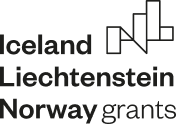Together We Can is a project designed to improve the mental health of children and adolescents who have experienced violence, to be implemented in small and medium-sized municipalities in Lithuania between 2021 and 2023.
Initial project cost: 247,997 EUR. The project is funded by the European Economical Area (EEA) Financial Mechanism and is part of the Health Program.
The Health Program aims to strengthen mental health services in communities and improve the well-being of children and young people in Lithuania. Project’s Together we can managing company is Public Intsitition Gralio projektai. More info: www.norwaygrants.lt
The Together We Can project was created to help build a positive, fulfilling and peaceful future for children and teenagers! We are excited and honoured to adopt and use advanced world-class methodologies in Lithuania as the project is implemented.
We know that Lithuania has skilled and dedicated professionals, educational institutions that care, and municipalities that are committed to ensuring a peaceful environment for youths. United and driven by the idea of togetherness, together we will strive to create a happier, healthier childhood and adolescence for you – the future citizens of our country!
The project is implemented in these Lithuanian municipalities: Alytaus, Joniskio, Jonavos, Kelmes, Kretingos, Mazeikiu, Pasvalio, Rokiskio, Silutes, Taurages, Ukmerges, Varenos.
Because TOGETHER WE CAN to be more productive, happier, and more positive!
We believe in the reciprocal willingness to help others, in peaceful communication styles, and in innovative and effective solutions to nowadays’ problems.
TOGETHER WE CAN #grow #getbetter #haveabrighterfuture #solveproblems #feelbetter #fightanxiety #learnmore #enjoychildhood #understandeachother #help #talk #getalongbetter #enjoylife #createthefuture #experiencewonders #progress #createpeacefulchildhood
Did you know that violence and trauma are still a problem in modern times?
The witch hunts, wars and Crusades are over in the world. So, does violence still exist today? That’s a great question… Here’s what we know:
Despite progress and social change, violence is still a problem in the 21st century, and violence against children is a hot topic in Lithuania and around the globe. Because children are sensitive beings, emotional, psychological and physical violence, peer and cyber bullying, threats, discrimination, sexual harassment, neglect, and violence on TV and the internet—all real-world events they face—can be particularly traumatic to them. Such experiences can trigger early symptoms of PTSD, depression and anxiety, which over time can lead to serious negative consequences, such as persistent depression, destructive thoughts, delinquent behaviour, harmful habits, impaired learning skills and a lower quality of life. Lithuania still lacks effective early non-medical help for children who have been the victims of violence or trauma. There is also a barrier posed by shame and family finances, which means that not all victims identify the problem and seek professional help.
You are not alone!
According to the World Health Organisation, one in two children and adolescents experiences some form of violence and/or trauma once a year or more. With our project, we hope to reduce early symptoms of post-traumatic stress disorder, anxiety and depression in children who have been exposed to violence, using CBITS (Cognitive Behavioural Intervention for Trauma in Schools) and Bounce Back intervention methods.
Project objectives:
- to adapt the evidence-based CBITS methodology and its modified version (Bounce Back) in small and medium-sized municipalities in Lithuania;
- to identify children who have experienced violence or trauma and have symptoms of post-traumatic stress disorder, anxiety or depression, and implement evidence-based interventions.
We are here to help. We believe in our project idea, and we invite you to believe in it too!
With this project, we are going to offer something that has never been done in Lithuania before: to implement CBITS and Bounce Back methodologies. These are innovative, effective, evidence-based programmes with three main objectives:
- to reduce early symptoms of depression and anxiety following violence and/or traumatic experiences;
- to prevent future increases in symptoms;
- to increase peer and parental support for children/adolescents who have experienced violence or trauma.
By significantly reducing the early symptoms of violence or trauma, the above methodologies not only improve the quality of everyday life of the child/adolescent (free from depression, anxiety, sleep disturbances and social exclusion) but also prevent the progression of these symptoms in the future. This is particularly important because if the progression of symptoms is not stopped in time, they can turn into bigger problems such as harmful habits, outbursts of aggression, depression, delinquent behaviour, and so on.
